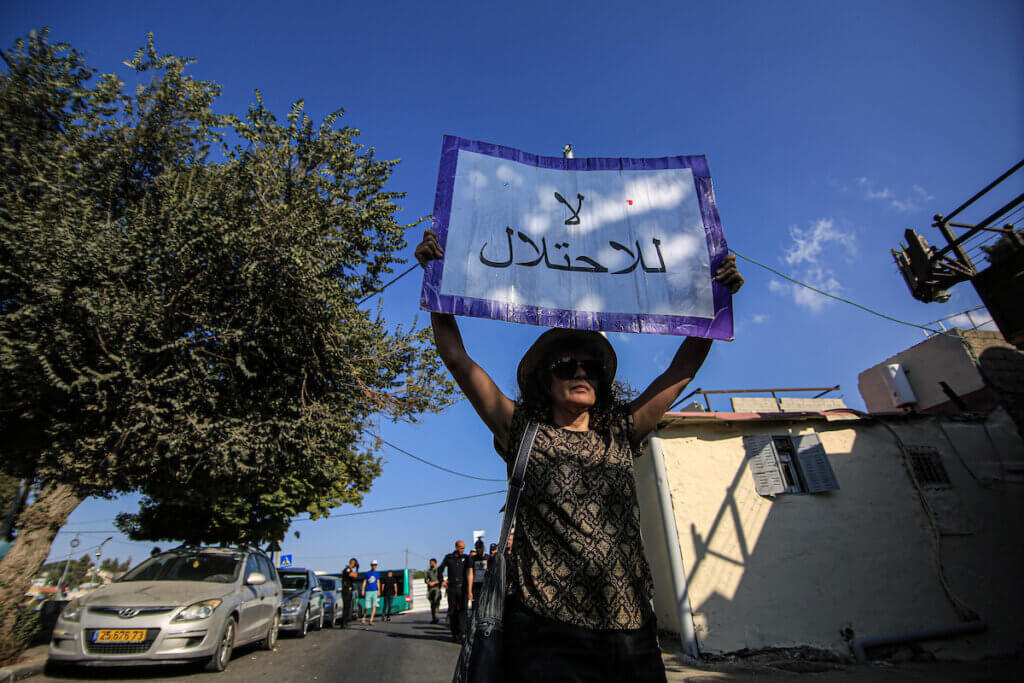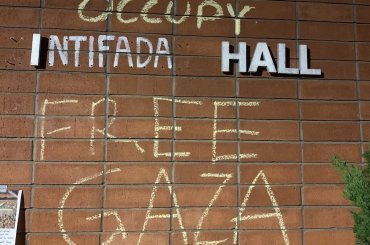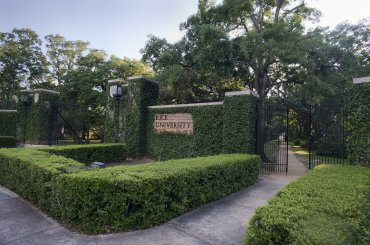With the collapse of the two-state solution, it is now more important than ever for people of goodwill, struggling for justice and peaceful coexistence between Israeli Jews and Palestinian Arabs, to seek new ways to work together for a common future.
Before the Oslo process, it was common to have Jews and Arabs work and demonstrate together against the evils of the occupation, the creeping annexation, and the process of oppression and dispossession of the Palestinians that was most marked by the settlement movement and the oppressive policies of domination. With the Oslo process, however, there was a marked reduction in such joint activities. Many Israelis thought that progress towards a two-state solution required them to refrain from even traveling to the West Bank. The prevailing view was “We are here and they are there”.
As the Palestinian Authority began to develop its institutions, it fell into the trap of hafrada (separation), a basic feature of the apartheid system in the occupied Palestinian territory (oPt). The system included the building of the Separation Wall (Geder hafrada), the elaborate parallel system of roads, infrastructure, and administrative processes, as well as different laws applying to Arabs and Jews in the oPt. Palestinians from the occupied territory could not go to Israel or even into the all-Jewish settlements without a permit. At the same time, Jews and Israelis were warned that even entering Area A, which was supposedly under Palestinian Authority control, was not only dangerous but also prohibited by law. That was usually enough to deter most Israeli liberals from even attempting to meet with Palestinians in the occupied Palestinian territory and join their anti-occupation struggle, leaving them alone to confront Jewish settlers and the Israeli army. Some brave Israeli organizations like the Israeli Committee Against House Demolitions, Breaking the Silence, and the Circle of the Bereaved continued to come to the occupied territory and join with Palestinians in activities confronting the occupation and its apartheid system, but most Jewish Israeli liberals concentrated on fighting fascism inside Israel, trying to regain power in the Knesset and to keep alive the mirage of a possible two-state solution.
At the same time, Palestinians had become far more sensitive to how joint Jewish -Arab activities have been used to legitimize and “normalize” the current situation and blunt their anti-colonial and anti-Zionist message. Many well-meaning activities sought to bring Jews and Arabs together under highly controlled conditions, which apparently aimed at promoting co-existence without truly addressing or challenging the underlying injustice. Some of these activities openly declared they intended to support the Oslo peace process. This was seen by most Palestinians as normalizing a situation that was increasingly intolerable and unacceptable.
Furthermore, the BDS movement sought to use the nonviolent tool of boycotts not only against Israeli products and settlement activities but also called for boycotts of Israeli individuals, institutions, and organizations that were deemed to be “normalizing” the status quo and only seeking cosmetic or minimal improvements without radically challenging the system itself. Some Palestinians developed an elaborate system for determining which Israelis were acceptable as cooperating with them was not “normalization. Israeli interlocutors were often asked to support the three principles of BDS: the end of the occupation, the refugees’ right of return, and equality for Arabs in Israel before they were considered “legitimate partners” for joint activities. For many Palestinians, however, it became easier to avoid all cooperation with Israelis or Zionists altogether rather than risk being labeled as “normalizers.” The PA itself, while openly cooperating with Israeli security forces, also engaged in similar rhetoric denouncing civil society members who sought cooperation with Israelis as “normalizers.”
But even apart from pressure from the PA, many Palestinians thought it was easier to avoid all contact with Israelis than to actively seek joint activities against the occupation and the settlement structures. In a real way, just as the “peace process” gave peace itself a bad name, and the close security cooperation between the PA administration and the occupation forces made any cooperation between Israeli and Palestinian activists harder and more suspect.
Years before “normalization” created such a dilemma for activists, I wrote an article called “The Pitfalls of Dialogue” on the risks involved in a dialogue with the Israelis and how such dialogue often assumes a false symmetry, becomes a substitute for action, and/or legitimizes and affirms the assumptions of the oppressive status quo. It continues to read true today and is relevant to the whole discussion around normalization.
Yet, with the collapse of the two-state solution, it is increasingly apparent that the same apartheid and colonial policies exist for Arabs within Israel as within the occupied territory. The entire system is built on Jewish privilege and supremacy. To fight the system, both Jews and Arabs need to find common ground.
The privilege, freedom, access, and relative immunity enjoyed by Jews both in Israel and the occupied territory provide them with tools and protection that Palestinian Arabs do not enjoy. Their very presence often ameliorates violence, as both settlers and soldiers are less likely to use lethal force against them. Furthermore, they have tools for monitoring, obstructing, and even pressuring the Israeli government that are unavailable to Palestinians. They also enjoy more credibility. These privileges, however unfair, give them an advantage and allow them to play a significant part in the struggle for freedom and equality. At the same time, they are the beneficiaries of the system which openly favors Jews and their rights over Palestinians. It is, therefore, not enough for them to pick some of the more outrageous elements of the oppressive system to oppose while refusing to acknowledge their own complicity in the system.
The excesses of the present Israeli government and the abandonment of the façade of democracy by its right-wing elements provide an opportunity for rethinking the system as a whole and for seeking a new joint vision for Arabs and Jews to seek a better future together based not on supremacy but on equality and genuine democracy for all. To do that, both sides need to address the issue of “normalization,” seek genuine forms of co-resistance, and abandon the pretense that coexistence is possible within the framework of an apartheid system in any part of the Land.



Didn’t Jews suffer enough under Hitler and the Nazis? Or is it more that present-day Jews in israel know the history but never experienced this painful time themselves? And so now they turn around and inflict pain and misery on Palestinians? FOR SHAME!!!
I remember reading about some Israelis visiting with Palestinians, wanting to talk about spiritual matters. The Palestinians wanted to talk about water. The Israelis were surprised that water was a problem.
And there was the time Daniel Barenboim played a concert in a Palestinian town (he wouldn’t play in the settlements) and a girl said he was the first Jew she had ever seen who was neither a police officer nor a soldier.
There can be no co-existence until Christian Zionists – especially in the USA – realise that Christ does not need the prophesied re-Judification of “Zion”, (and thus the ethnic cleansing of Palestinians), before he returns to earth.
“The excesses of the present Israeli government and the abandonment of the façade of democracy by its right-wing elements provide an opportunity for rethinking the system as a whole and for seeking a new joint vision for Arabs and Jews to seek a better future together based not on supremacy but on equality and genuine democracy for all.”
______________________________________________________
Seeking a better future together is an imperative. Those who can’t understand this, or don’t appreciate the present fertile ground for doing so, will be part of the problem.